The Algorithmic Classroom
South Korea’s ambitious experiment with AI in classrooms holds lessons for the world
Innovative financing empowering smallholder farmers for sustainable growth
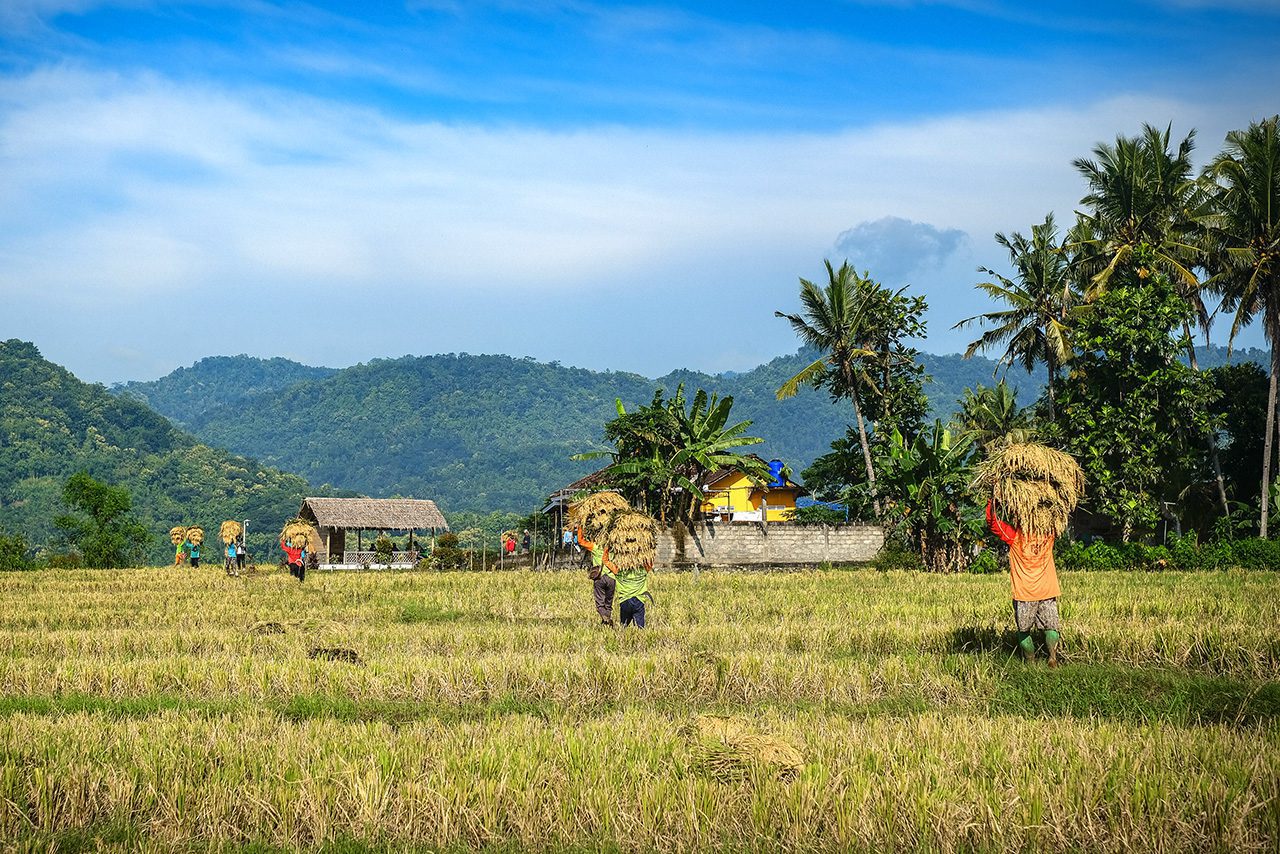
Image Courtesy of Eratani
Even though Indonesia is the third largest rice producer in the world, it imported 3.5 million tons of rice in 2023 and expects to import at least 3 million tons this year. Eratani is working to boost smallholder farmers’ productivity and incomes to help increase rice production and resolve the shortage, according to co-CEO Bambang Cahyo Susilo.
A declining agricultural sector
The major issues in rice farming, Bambang said, reflect an imbalance in supply and demand. The root causes of an insufficient supply, he believes, include a massive decline in available land due to the expansion of manufacturing and housing, a declining number of farmers, the younger generation not wanting to be farmers, and declining productivity. In a population of 281 million in Indonesia, the number of smallholder farmers is down to about 28 million.
The rice shortage is exacerbated by demand from a growing middle class that wants ever-improving meals. Whereas Bambang ate corn and cassava when he was growing up in a rural village in Indonesia, the middle class wants far more – including rice.
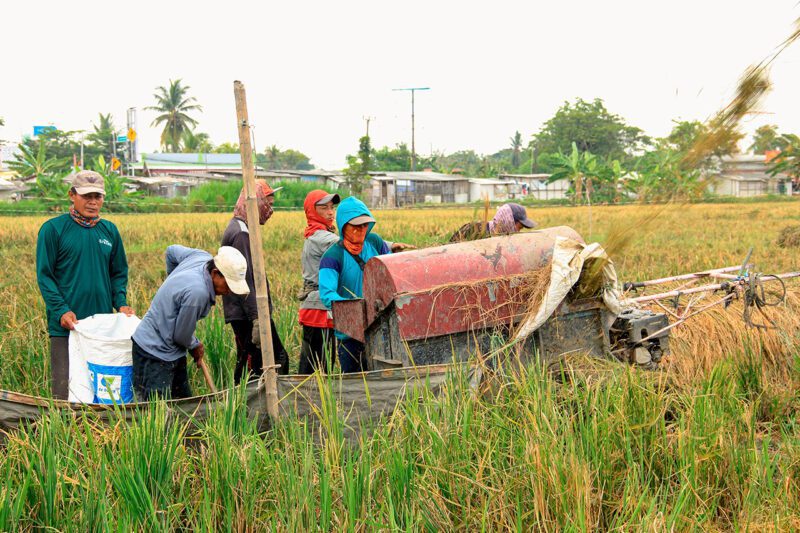
Image Courtesy of Eratani
On the upstream side, he said, two fundamental problems are financing and knowledge.
While the government provides financial support through microfinance programs, farmers are only eligible for a loan four times in their entire life. Since there are three rice crop cycles annually, the financing only helps them for a little more than a year. Other microfinance solutions have limited reach, and loan sharks are expensive. Financial institutions don’t usually lend to smallholder famers, Bambang said, because they do not have creditworthiness information about them.
Additionally, farmers have insufficient access to knowledge and technology. Since most farmers use traditional methods and lack financial literacy, their productivity is low.
Technology to overcome the problem
The leaders at Eratani come from small farming villages, Bambang said, so they understand the agricultural sector and seek to provide the holistic solutions the farmers need.
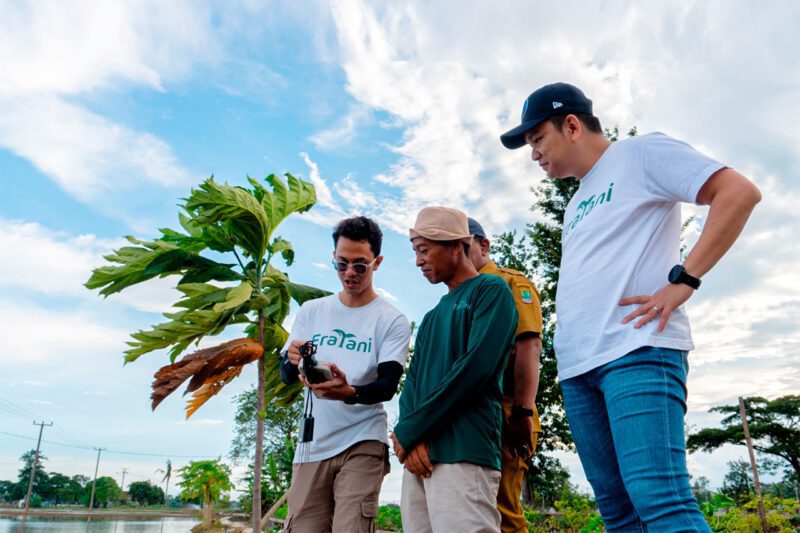
Image Courtesy of Eratani
Eratani uses the IOT (internet of things) to assess the condition of the land and identify supplies such as fertilizer or technology that the farmer needs. They also give that information to the lenders so farmers can obtain loans. Once a loan is approved, Eratani monitors the farmer through its incubation program. Eratani advises farmers on steps to take, from planting to harvest, to increase production. Eratani also manages the funding to make sure farmers do not use it for other purposes.
Eratani provides data about the supply chain and product traceability to fertilizer companies, other suppliers, and distribution channels to get supplies to farmers at affordable prices. It connects farmers with purchasers such as rice millers when they harvest their crops, enabling farmers to get a better price. It has reliable information on the timing, quality, quantity, and type of rice that rice millers will receive, so mills can manage warehousing efficiently. Eratani also helps purchasers resolve issues and can help with supply chain financing.
Every ten days, Bambang said, “our operation assesses progress. We provide creative solutions, access to reliable inputs, a market. We lock in trust with the farmer. We’re creating this ecosystem and a movement.”
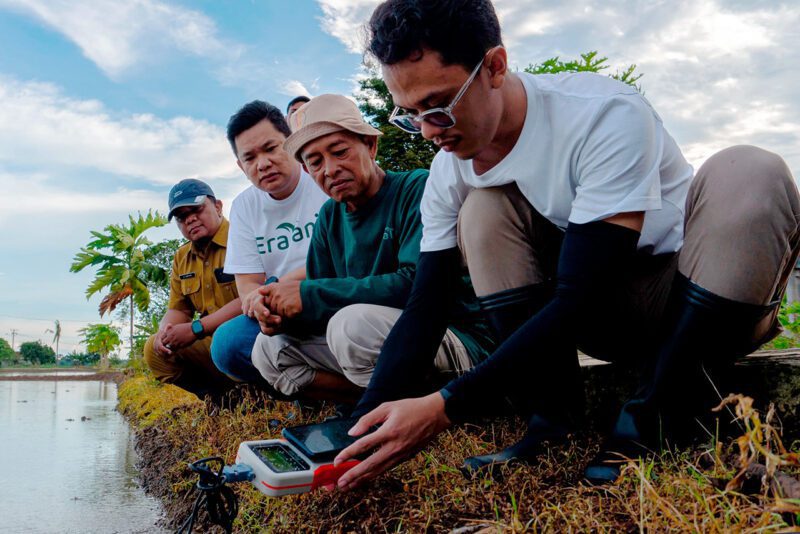
Image Courtesy of Eratani
On the financing side, Eratani provides granular information about land condition and ownership as well as productivity to banks. It measures production, crop information, purchasers, crop prices, and farmers’ income per month and per cycle. “We are building trust of financial institutions (FIs),” he said. “We have zero net non-performing loans. After two and a half years, banks are coming to us. Banks don’t have information and are not leveraging technology. The bank didn’t check land. Eratani is the most reliable partner.”
A strong business
Eratani has reasonable margins in its various lines of business, albeit somewhat lower than other start-ups. The financing business has a 10-12 percent margin, Bambang said, and Eratani receives 10 percent from vendors when farmers need supplies.
Even though there are competitors, Bambang believes Eratani has a strong first-mover advantage. “We empower the community and partner with government, universities, rice millers, and local authorities. We are creating a strong ecosystem. We do not need to knock on every door.”
Eratani is also building community, which further strengthens its business. It operates in about 410 villages, providing farming and non-farming education in its farmer incubation program. It supports the 30 percent of farmers who are women by providing training and enabling financial literacy. And it partners with financial institutions.
“Happy farmers become agents in acquiring new potential farmers,” Bambang added.
Future growth plans
Although Eratani has only been operating for three years, its stakeholders already include financial institutions, insurance companies, government, farmers, 450 kiosk partners, and more than 70 rice millers. Revenue in 2023 was US$20 million and Bambang expects it to reach US$60 million in 2024, with a goal in the next five years of US$765 million. “We have been profitable since day one.”
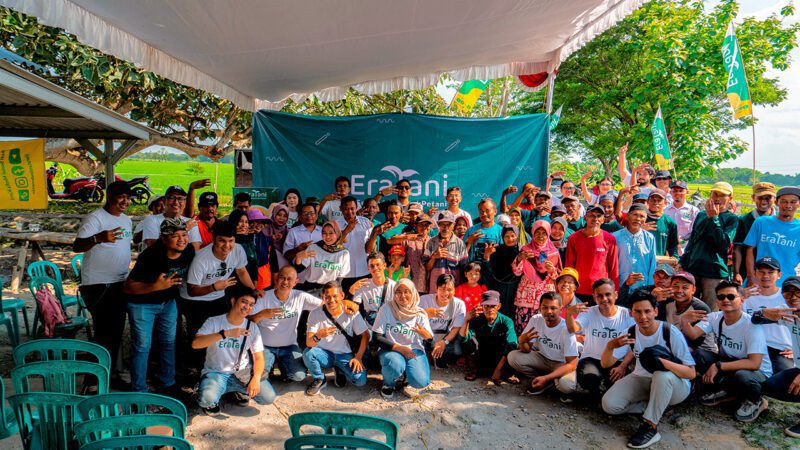
Image Courtesy of Eratani
It targets 1.3 percent of the total addressable market of smallholder farmers in the country. “This requires an operational recipe, competency, technology, and having passion,” he said. “Dealing with this requires a commitment to solve a very complex problem. We are trusted by individuals who believe in our mission.” It also targets growing beyond its current 165 employees so it can scale up and transform the Indonesian agricultural sector.
“We plan for sustainability,” Bambang said. “We partner with a company, we introduce new approaches. It is hard to change mindset of farmers so they replace chemicals with environmentally friendly bio-fertiliser, (even though) it improves productivity, sustainability, and is cheaper.” It is also testing new methods such as alternate wetting and drying in rice farming. “I want to change the mindset, reduce water. Our mission is improving the income of the farmers.”
Eratani provides data about the supply chain and product traceability to fertilizer companies, other suppliers, and distribution channels to get supplies to farmers at affordable prices.
And having worked on rice, the most difficult crop, it expects to expand into easier crops before long.
Creating positive impact
Eratani is clearly more than just a business for Bambang. “What made me move into this industry was relevancy,” he said. He was the first person in his village to go to university, and it changed his life. After working in the finance sector in Australia and Singapore as well as New York, he decided to return to Indonesia and his roots in farming to give back.
“It is a calling for me,” he said. “100 percent of farmers are bankable. Access to banks increases productivity, increases income. Providing affordable input, affordable financing, and a better price for the market increases their life. This is fundamental for me going to this sector. We want to give back to the community, the nation.”
Related Content
Comments
Deep Dives

Featuring
Clarisse Awamengwi
IE Correspondent
July 17 - 12:00 PM EST

Featuring
Russell McLeod
July 24 - 12:00 PM EST
RECENT
Editor's Picks
Webinars
News & Events
Subscribe to our newsletter to receive updates about new Magazine content and upcoming webinars, deep dives, and events.
Become a Premium Member to access the full library of webinars and deep dives, exclusive membership portal, member directory, message board, and curated live chats.
At Impact Entrepreneur, we champion fearless, independent journalism and education, spotlighting the inspiring changemakers building the Impact Economy. Diversity, equity, sustainability, and democracy face unprecedented threats from misinformation, powerful interests, and systemic inequities.
We believe a sustainable and equitable future is possible—but we can't achieve it without your help. Our independent voice depends entirely on support from changemakers like you.
Please step up today. Your donation—no matter the size—ensures we continue delivering impactful journalism and education that push boundaries and hold power accountable.
Join us in protecting what truly matters. It only takes a minute to make a real difference.
0 Comments